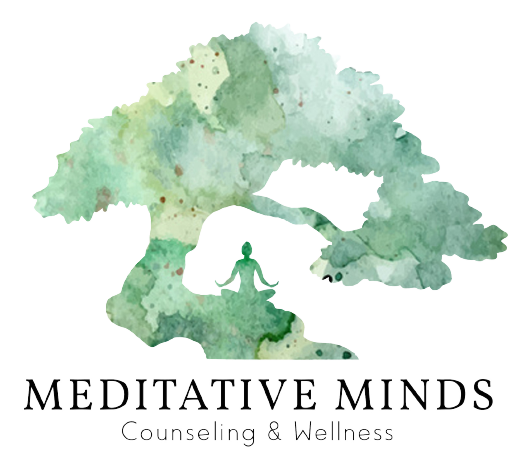In the picturesque city of Simi Valley, where the natural beauty of the surroundings often contrasts with the internal struggles people face, Eye Movement Desensitization and Reprocessing (EMDR) therapy offers a beacon of hope for enhancing emotional resilience. This innovative therapy, developed by Francine Shapiro in the late 1980s, has become a powerful tool in addressing trauma and emotional distress, fostering greater resilience and well-being among individuals.
Understanding EMDR Therapy
EMDR therapy is designed to help individuals process and integrate traumatic memories and adverse experiences. The therapy involves a structured approach where a trained therapist guides the patient through a series of steps, including focusing on distressing memories while engaging in guided eye movements or other forms of bilateral stimulation. This process helps to desensitize the emotional charge of traumatic memories and facilitates a more adaptive and balanced perspective.
EMDR therapy’s strengths lie in its ability to address the root causes of emotional distress, foster resilience, and promote overall psychological well-being. By engaging clients in a comprehensive and structured process, EMDR offers a powerful tool for healing and growth.
Enhancing Emotional Resilience
Processing Trauma
EMDR therapy is particularly effective for individuals dealing with trauma, such as post-traumatic stress disorder (PTSD), anxiety, and depression. By reprocessing traumatic memories, EMDR helps reduce the emotional intensity associated with these memories. This reduction in emotional charge enables individuals to respond more effectively to stressors and challenges, thereby enhancing their emotional resilience.
By addressing these aspects of trauma through EMDR therapy, individuals can achieve significant emotional relief and resilience. The therapy not only helps in processing and integrating traumatic memories but also fosters a more adaptive and balanced emotional state, allowing individuals to move forward with renewed strength and clarity.

Building Coping Skills
Through the EMDR process, individuals often develop a deeper understanding of their emotional responses and coping mechanisms. This self-awareness and insight contribute to stronger coping skills, allowing individuals to manage stress and adversity with greater ease. As a result, they are better equipped to handle future challenges and maintain emotional stability.
EMDR therapy plays a vital role in building coping skills by increasing self-awareness, strengthening emotional regulation, improving problem-solving abilities, and enhancing social support networks. As individuals progress through the therapy, they develop a more profound understanding of their emotional responses and learn effective strategies for managing stress and adversity. By incorporating these coping skills into their daily lives, individuals can achieve greater emotional resilience and overall well-being.
Fostering Positive Beliefs
EMDR therapy helps individuals challenge and reframe negative beliefs about themselves that may have developed as a result of traumatic experiences. By replacing these negative beliefs with positive, adaptive ones, individuals build a stronger sense of self-worth and confidence. This newfound resilience empowers them to face difficulties with a more optimistic and proactive mindset.
EMDR therapy’s focus on fostering positive beliefs transforms how individuals perceive themselves and their abilities. By reprocessing negative core beliefs and developing positive self-affirmations, individuals can build a more resilient and confident self-image, leading to improved emotional well-being and a more empowered approach to life’s challenges.
Improving Overall Well-Being
The therapeutic process of EMDR not only addresses trauma but also promotes overall emotional well-being. Individuals often report feeling a greater sense of inner peace, reduced anxiety, and improved mood following EMDR therapy. This enhanced well-being contributes to a more resilient emotional state, enabling individuals to navigate life’s ups and downs with greater ease.
EMDR therapy offers profound benefits for overall well-being by addressing not only the symptoms of trauma but also enhancing various aspects of emotional and psychological health. From reducing anxiety and improving relationships to boosting self-esteem and promoting personal growth, EMDR therapy fosters a more balanced and fulfilling life. If you’re interested in exploring how EMDR therapy can enhance your well-being, consider reaching out to a qualified therapist in Simi Valley.
EMDR Therapy in Simi Valley
Simi Valley offers a range of mental health professionals trained in EMDR therapy. If you’re seeking support to enhance your emotional resilience, local therapists are available to guide you through this transformative process. Whether you’re dealing with trauma, stress, or simply looking to strengthen your emotional resilience, EMDR therapy can provide the tools and insights needed to achieve lasting positive change.
EMDR therapy offers a powerful tool for those in Simi Valley seeking to enhance their emotional resilience and overcome the effects of trauma. By choosing a qualified EMDR therapist and engaging in the structured therapy process, individuals can experience significant improvements in their emotional well-being. If you’re ready to take the next step towards healing and resilience, consider exploring EMDR therapy options in Simi Valley.
Conclusion
EMDR therapy is a powerful tool for enhancing emotional resilience, offering individuals a structured approach to process and heal from past traumas. By integrating this therapy into your wellness routine, you can gain a deeper understanding of your emotional responses and develop healthier coping strategies. As you embark on this journey towards emotional healing, consider the supportive guidance of professionals who specialize in EMDR therapy.
For more information or to schedule a consultation, contact Meditative Minds Counseling & Wellness in Simi Valley, CA at (805) 285-8466. Our team is here to support your path to emotional resilience and well-being.


